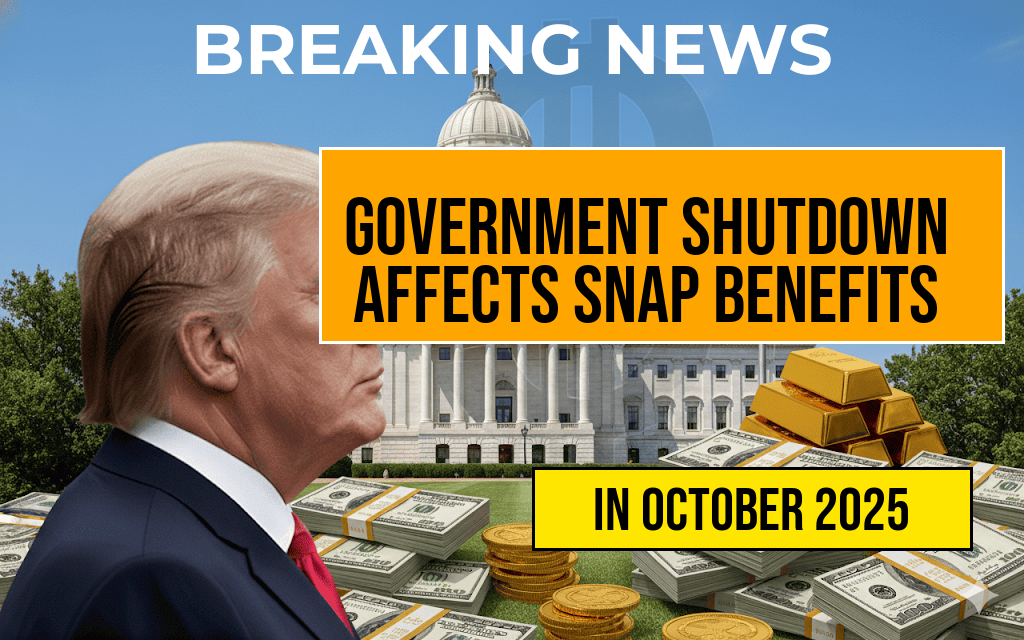The potential for a federal government shutdown has raised significant concerns among recipients of the Supplemental Nutrition Assistance Program (SNAP), commonly known as food stamps. With lawmakers locked in budget negotiations, uncertainty looms over the future of these crucial benefits. If a shutdown occurs, it could disrupt the timely distribution of SNAP benefits, affecting millions of low-income families across the United States. As the deadline approaches, understanding the implications of a government shutdown on food assistance programs is essential for current recipients and advocates alike. This article explores the potential changes to SNAP benefits, the anticipated timelines for any modifications, and what recipients can do to prepare for the possibility of disrupted services.
Impact of a Government Shutdown on SNAP Benefits
A government shutdown occurs when Congress fails to pass appropriations legislation to fund federal government operations. In such instances, many federal programs face disruptions, including SNAP. The impact of a shutdown on food stamp benefits can vary, but key areas of concern have been identified.
Potential Delays in Benefit Disbursement
One of the most immediate effects of a government shutdown could be delays in the disbursement of SNAP benefits. Typically, these benefits are distributed on a monthly basis, and a shutdown could affect the processing of applications and renewals.
- New Applicants: Individuals applying for SNAP during a shutdown may experience significant delays.
- Renewals: Current recipients due for renewal may face challenges in maintaining their benefits.
- Emergency Allotments: States providing emergency allotments may also see disruptions.
Funding for SNAP During a Shutdown
SNAP is primarily funded through the U.S. Department of Agriculture (USDA), which typically continues operations even during a government shutdown. However, the availability of funds might vary based on the duration of the shutdown and ongoing negotiations in Congress.
According to a report by the USDA Food and Nutrition Service, the agency can draw upon reserve funds to continue operating SNAP in the short term. However, if a shutdown extends beyond a few weeks, the sustainability of these reserve funds becomes increasingly uncertain.
What Recipients Should Expect
For individuals relying on SNAP, it is crucial to stay informed about potential changes. Here are some anticipated outcomes that recipients should consider:
- Emergency Benefits: If a shutdown occurs, emergency allotments may not be issued, leaving families at risk of food insecurity.
- State-Level Variations: Each state may respond differently to a shutdown, so it is essential for recipients to check with their local SNAP offices.
- Communication: Recipients should ensure that their contact information is current to receive updates from local agencies.
Preparing for Potential Changes
As uncertainty looms, recipients can take proactive steps to prepare for potential disruptions in SNAP benefits:
- Stock Up on Essentials: If possible, families should consider stocking up on non-perishable items to mitigate the impact of any delays.
- Utilize Local Resources: Engage with community food banks and local organizations that offer food assistance.
- Stay Informed: Regularly check official state and federal websites for updates regarding SNAP benefits during a government shutdown.
What Happens Next?
The current political climate indicates that negotiations will likely intensify as the deadline approaches. Advocates for SNAP and low-income families are urging lawmakers to prioritize food assistance programs in budget discussions. Organizations such as the Feeding America have highlighted the critical importance of SNAP in combating food insecurity, emphasizing that any disruption could have long-lasting effects on vulnerable populations.
Conclusion
As the specter of a government shutdown approaches, SNAP recipients must remain vigilant about potential changes to food assistance programs. Understanding the repercussions of a shutdown can help families prepare and respond effectively to any challenges they may face in obtaining necessary food resources. Keeping informed and proactive is essential in ensuring continued access to critical benefits during uncertain times.
Frequently Asked Questions
What is the impact of a government shutdown on SNAP benefits?
A government shutdown can lead to delays in SNAP benefits disbursement, affecting the timely delivery of food assistance to recipients. While some benefits may continue for a short period, long-term shutdowns can result in reduced funding and changes to the program.
Will recipients receive their food stamps during a government shutdown?
During a government shutdown, current recipients may still receive their food stamps for a limited time, but future benefits could be delayed or altered. It is essential for recipients to stay informed about updates from their local SNAP offices.
Are there any changes to eligibility for SNAP during a shutdown?
Eligibility for SNAP generally remains unchanged during a government shutdown. However, processing times for new applications may be extended, and some services may be temporarily unavailable.
How can SNAP recipients prepare for potential changes during a shutdown?
SNAP recipients should stock up on non-perishable food items and create a budget to manage their resources more effectively. Staying updated on news and communication from SNAP offices is crucial for navigating any changes.
What resources are available for SNAP recipients during a government shutdown?
Recipients can access resources such as local food banks, community organizations, and the official SNAP website for information on assistance programs and updates regarding their benefits during a government shutdown.

Leave a Reply